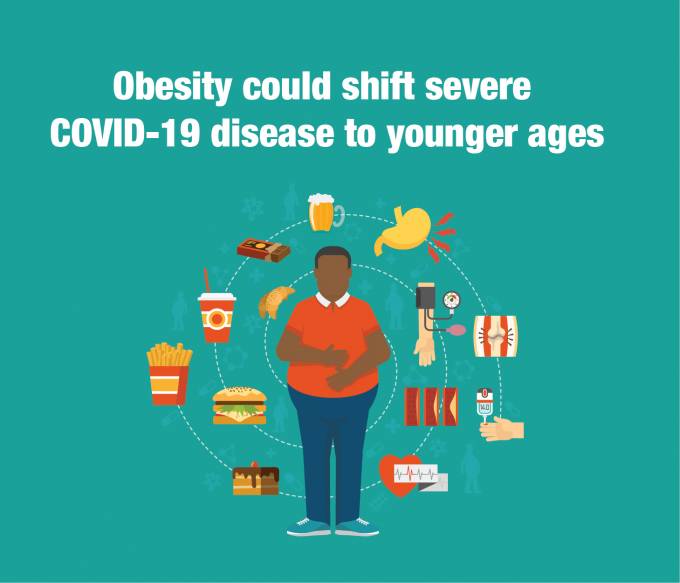Covid -19 threatens regional food security

Nesia Mhaka Correspondent
The raging deadly coronavirus pandemic (Covid-19) and the global lockdowns pose a serious threat to food security across the entire Southern Africa region which is already battling a drought caused by poor rains in the just ended cropping season.
A lot of countries in Sub-Saharan Africa rely heavily on imported food to meet their demand and these nations are likely to face disproportionate risk from supply chain failures, especially in the face of border-crossing closures due to Covid-19 pandemic, the Food and Agriculture Organisation (FAO) says.
The World Food Program was already feeding millions of people in Africa suffering from a myriad of disasters which include floods, drought, civil wars, economic challenges, crop pest such as plagues of locusts and fall armyworm.
The coming of Covid-19 pandemic has added another layer of hardship across the whole region.
In the SADC region some farmers are still recovering from the two devastating cyclones (Cyclone Idai and Cyclone Dineo) that battered Mozambique, Zimbabwe and Malawi last year and left thousands of people homeless.
People in these affected countries are in dire need of food.
In Zimbabwe alone, the WFP says more that 7.7 million people are facing food insecurity, and that numbers are set to pick as the Covid 19 pandemic affects more vulnerable sections of the country.
The spreading Covid-19 virus has left both lives and livelihoods at risk following severe back-to-back droughts in the SADC region.
In a statement, FAO director of emergency and resilience division, Mr Dominique Burgeon said Covid-19 is promising a looming food crisis, unless measures are taken fast to protect the most vulnerable.
“Even before Covid-19 hit, millions of people in Sub-Saharan Africa were already struggling with severe acute food insecurity due to pre-existing shocks or crises. This means they were already on the extreme end of the hunger spectrum-weak, and less well-equipped to fend off the virus,” he said.
“The vast majority live in rural areas, and depend on agricultural production, seasonal jobs in agriculture, fishing, or pastoralism.
“If they become ill or constrained by restrictions on movement or activity, they will be prevented from working their land, caring for their animals, going fishing, or accessing markets to sell produce they are likely to face serious food insecurities.”
Africa, Mr Burgeon said, will be the hardest hit continent in terms of food security as Covid-19 cases build up.
International Food Policy Research Institute director Mr Johan Swinnen said countries which rely heavily on imported food to meet demand are at risk from supply chain failures, especially in the face of border-crossing closures.
He said that due to global lockdowns farmers are going to face challenges to market or sell their produces, hence a solution is needed.
“Vulnerable groups also include small-scale farmers, pastoralists, and fishers who might be hindered from working their land, caring for their livestock, or fishing,” he said.
“They will also face challenges accessing markets to sell their products or buy essential inputs, or struggle due to higher food prices and limited purchasing power.
“Informal labourers will be hard hit by job and income losses in harvesting and processing. Millions of children are already missing out on the school meals they have come to rely upon, many of them with no formal access to social protection, including health insurance.”
He added, “As of now, disruptions are minimal as food supply has been adequate and markets have been stable so far. However, we are already seeing challenges in terms of logistics bottlenecks not being able to move food from point A to point B, and likely, there is less food of high-value commodities for example fruits and vegetables being produced.”
Zimbabwe Commercial Farmers Union president Mr Shadreck Makombe told The Herald recently that Covid-19 outbreak will cause food insecurities in the in Zimbabwe and whole of Sub-Saharan Africa since the whole farming process has been disrupted.
“Covid-19 has caused devastating effects and untold suffering. It just came from nowhere like a bolt from the blue and for obvious reasons no one was prepared for it. Food security becomes one of causalities of this pandemic,” he said.
“This is disruption of both supply and distribution chains for food, production is affected too. This is likely to continue into the foreseeable future.”
A Zimbabwe Vulnerability Assessment Committee (ZimVAC)’s analysis of the 21-day Zimbabwe Covid-19 lockdown revealed that people in urban areas are likely to face food insecurities due rapid price hikes of basic commodities.
The report analysis chronicled that in urban areas the most important sources of income are formal salaries and wages which constitutes 38.23 percent of the total households.
Prices of basic commodities have shot significantly owing to shortages on the market and profiteering.
Government has since ordered price controls to prevent people from being ripped off by greedy retailers.
Agriseeds sales and marketing director Ivan Craig pointed out that Covid-19 should not be underestimated as it provoked serious problems around the world especially in agricultural sector.
“We are not immune to the pandemic. Covid – 19 is affecting everyone and we need to go back to the drawing board to map strategies for survival,” he said.
“It’s not going to be business as usual now and in the future. This disease has left a scar in people’s lives and in all farming operations.
It’s affecting every facet of life you can think of.”
The pace of the COVID-19 coronavirus outbreak has been so rapid with information changing every second.
Covid-19 has spread around the world, sending billions of people into lockdown as health services struggle to cope.
The virus has affected more than 2,6 million people with 185 439 deaths and 729 982 recoveries.









Comments